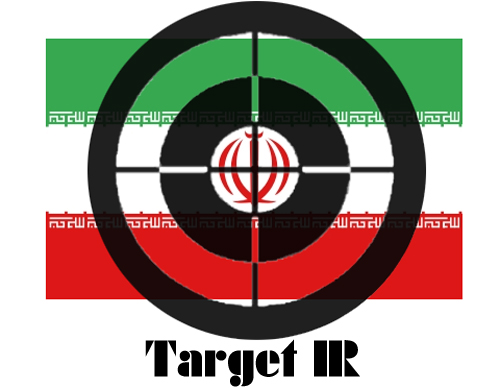The Latest from Iran (11 March): Changing the Drumbeats of War
Iran 1st-Hand: "People Here Are Boiling, But Don't Make A Sound"
Iran Snap Analysis: Walking Back from War?
The Latest from Iran (10 March): Oh, the US is So Weak
 1855 GMT: All the President's Men. Peyke Iran, citing Tabnak, claims that Presidential advisor Saeed Mortazavi, accused of responsibility for the Kahrizak detention centre abuses and killings in summer 2009, has been legally informed about the complaint and a trial could start soon.
1855 GMT: All the President's Men. Peyke Iran, citing Tabnak, claims that Presidential advisor Saeed Mortazavi, accused of responsibility for the Kahrizak detention centre abuses and killings in summer 2009, has been legally informed about the complaint and a trial could start soon.
Mortazavi was Tehran Prosecutor General when detainees were abused and three protesters died in Kahrizak. Although he supposedly had been suspended at one point from his duties over the case, he has never stopped service to Ahmadinejad and he has just been named head of the Social Security Fund.
1435 GMT: Ahmadinejad Watch. A far-from-minor note about the President's re-emergence in the Iranian media --- his speech in Karaj today is relegated to a small tab on the homepage of Fars, the site linked to the Revolutionary Guards.
1425 GMT: Ahmadinejad Watch. The President's post-election re-emergece continues. Having grabbed headlines with a Saturday photo opportunity with a visiting Iraqi Vice President (see 0925 GMT), Mahmoud Ahmadinejad used a gathering in Karaj to bolster this week's defiant line, set by the Supreme Leader, ahead of resumed nuclear talks with the US and other powers.
Ahmadinejad asserted, “They say all of the options are on the table. Let your options remain on the table until they (anti-Iran options) and yourselves rot together."
The President said all efforts to intimidate the Iranian nation, including sanctions and "bombs, warships, and warplanes", would fail: "The Iranian people deserve to live in the best conditions because they have a culture, civilisation, and divine message."
1415 GMT: Political Prisoner Watch. Journalist Ali Khodabakhsh has been sentenced to one year in prison for "propaganda against the regime".
1115 GMT: Political Prisoner Watch. Mohammad Tavassoli, the head of the Political Bureau of the Freedom Movement, has been returned to prison.
Tavassoli was the first mayor of Tehran after the 1979 Revolution.
0925 GMT: Ahmadinejad Watch. President Ahmaidnejad, or at least publicity for President Ahmadinejad, has emerged after last week's Parliamentary elections --- IRNA and Press TV highlight his Saturday meeting with Iraqi Vice President Khudayr al-Khuzai. Nothing special in the coverage, though, just Ahmadinejad's platitude, "There are no limits to the expansion of all-out relations in all fields, including culture, science, technology, energy, development, trade, and investment."
0855 GMT: Elections Watch. MP Habibollah Asgharouladi of the Motalefeh Party, while saying that "people with their participation showed that they want the principlists to be in Parliament", has pointed to battles within the movement. He declared, “In the first round of the election, the United Front of Principlists acted weak and had a weak campaign. We need to improve our weakness for the second round."
Asgharouladi pointed to principlist rivals, without giving names, “In the first round, some people insulted Ayatollah Mahdavi Kani and Mohammad Yazdi [leaders of the Unity Front] just to get into Parliament."
0850 GMT: Political Prisoner Watch. Zahra Rabbani Amlashi, the daughter-in-law of the late Grand Ayatollah Montazeri, has written senior clerics and Islamic scholars: "If nothing is done for the political prisoners, at least something should be done to give them leave for the Persian New Year.
Amlashi asked, “Why in these circumstances are their families being oppressed? Why is it that children cannot see their parents together?”
0840 GMT: Khatami Watch. Former President Khatami, who controversially voted in the Parliamentary elections despite setting unfulfilled conditions for participation, has met members of the Central Council of the Islamic Association of Tehran University.
Rah-e Sabz describes the students' questioning of Khatami and the former President's response, "If the security environment is lifted, this will open the space for political and legal activity."
0710 GMT: We begin this morning with a snap analysis noting the shift in media emphasis --- following President Obama's line against an Israeli military attack and the announcement of new talks over Iran's nuclear programme --- talking down "war" and talking up attention to the realities of, rather than the propaganda about, Tehran and The Bomb.
Yet, at the same time, we have an illuminating example of how, even in the effort to avoid an Israeli attack on Iran, tension can be maintained and even escalated.
American officials use journalist Marc Ambinder to put out this clever line: there is no need for an overt assault because Tehran can be undermined more discreetly:
The U.S.'s significantly ramped-up American covert sabotage and non-proliferation campaign has convinced the Israelis that the U.S. is more sensitive about Israel's "red lines" -- the no-way-back developments that the Jewish state can't tolerate and would pre-emptively strike to prevent. This, in turn, fortifies Israel's caution. Despite the hue and cry of Republican candidates, the two sides are actually moving closer together. (That doesn't mean that either country is preparing for action, and the U.S. remains committed to a policy of direct military action only as a last resort.)
Yet far from easing the situation, Ambinder's PR feeds the Iranian projection of "threat", not from its nuclear programme but from the enemies trying to overthrow the regime. Press TV headlines, "US Significantly Ramps Up Covert Ops Against Iran: American Journalist".

 Sunday, March 11, 2012 at 9:27
Sunday, March 11, 2012 at 9:27
Reader Comments